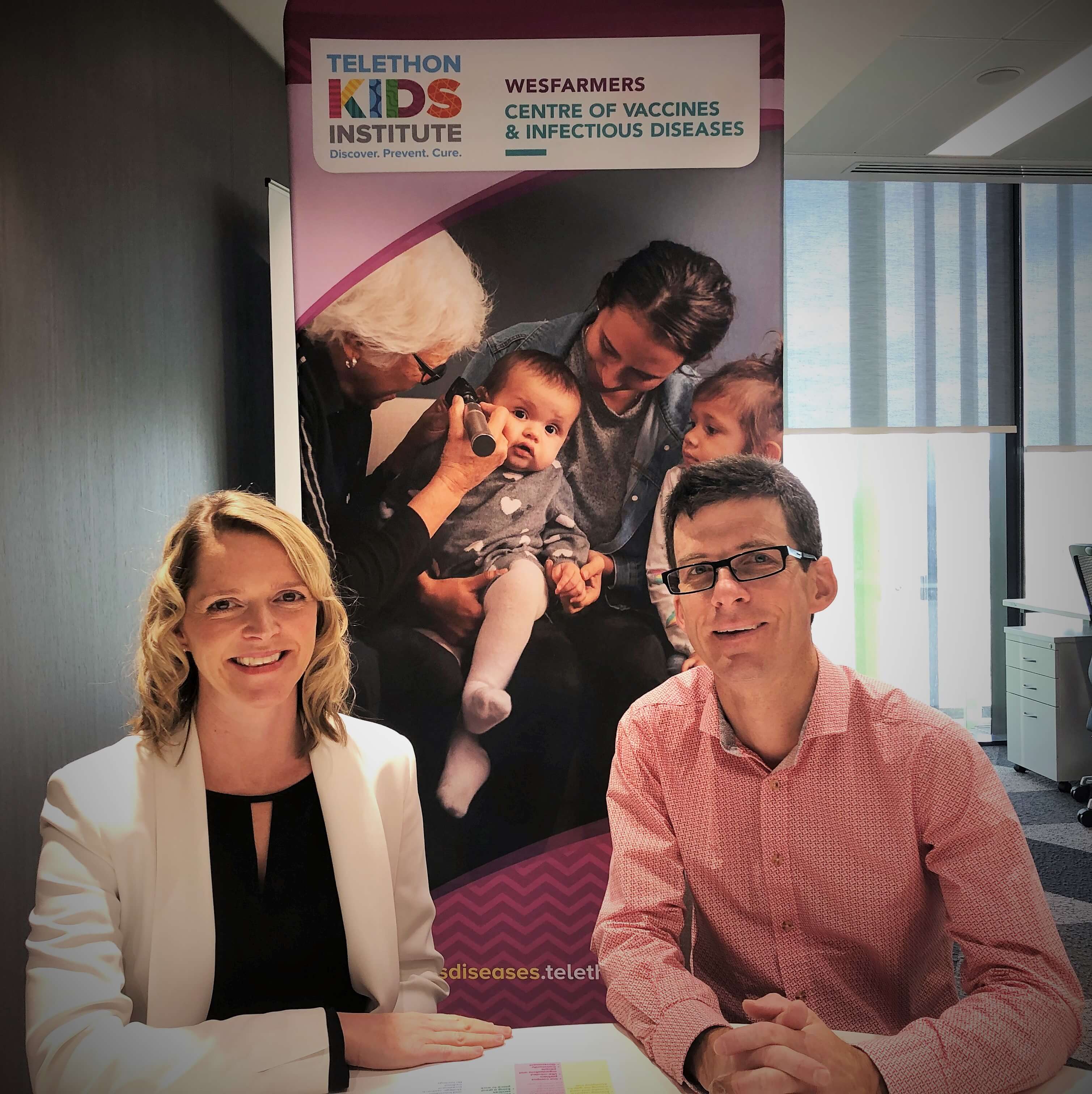Search
Research
Immediate and Longer Term Immunogenicity and Safety of a Single Dose of the Combined Haemophilus influenzae TypeHib-primed but MenC-naive toddlers (N = 433) were randomized to receive 1 dose of Hib-MenC-TT or separate Hib-TT and MenC-CRM197 vaccines.
Research
Comparison of the immunogenicity and reactogenicity of a prophylactic quadrivalent human papilloma VirusWe conducted a noninferiority immunogenicity study to bridge the efficacy findings in young women to preadolescent and adolescent girls and boys...

News & Events
New Co-directors for the Wesfarmers Centre of Vaccines and Infectious DiseasesDr Lea-Ann Kirkham and Dr Chris Blyth have been appointed as Co-Directors
Research
Acute rheumatic feverAcute rheumatic fever is an autoimmune disorder resulting from Group A Streptococcus pharyngitis or impetigo in children and adolescents, which may evolve to rheumatic heart disease (RHD) with persistent cardiac valve damage. RHD causes substantial mortality and morbidity globally, predominantly among socioeconomically disadvantaged populations, with an interplay of social determinants of health and genetic factors determining overall risk.
Research
Breadth of immune response, immunogenicity, reactogenicity, and safety for a pentavalent meningococcal ABCWY vaccine in healthy adolescents and young adultsA multicomponent meningococcal serogroups ABCWY vaccine (MenABCWY) could provide broad protection against disease-causing meningococcal strains and simplify the immunisation schedule.
Research
“We've wanted to vaccinate against it and now we can”: views of respiratory syncytial virus disease and immunisation held by caregivers of Aboriginal children in Perth, Western AustraliaRespiratory syncytial virus (RSV) is a major cause of respiratory infection with a higher burden in Aboriginal and Torres Strait Islander infants and children. We conducted a pilot qualitative study identifying disease knowledge and willingness to immunise following the changing immunisation landscape for infant RSV in 2024.
Research
Are C-reactive protein and procalcitonin safe and useful for antimicrobial stewardship purposes in patients with COVID-19 - A scoping reviewThe primary objectives of this study were to assess the usefulness of C-reactive protein and procalcitonin in the diagnosis of bacterial co-infections in coronavirus disease 2019 (COVID-19) and if their incorporation in antimicrobial stewardship programs is safe and useful, stratified by severity of disease as level of care, intensive care unit (ICU) or non-ICU.
Research
Geographical migration and fitness dynamics of Streptococcus pneumoniaeStreptococcus pneumoniae is a leading cause of pneumonia and meningitis worldwide. Many different serotypes co-circulate endemically in any one location. The extent and mechanisms of spread and vaccine-driven changes in fitness and antimicrobial resistance remain largely unquantified.
Research
The genomic evolutionary dynamics and global circulation patterns of respiratory syncytial virusRespiratory syncytial virus (RSV) is a leading cause of acute lower respiratory tract infection in young children and the second leading cause of infant death worldwide. While global circulation has been extensively studied for respiratory viruses such as seasonal influenza, and more recently also in great detail for SARS-CoV-2, a lack of global multi-annual sampling of complete RSV genomes limits our understanding of RSV molecular epidemiology.
Research
Meningococcal Disease in the Post–COVID-19 Era: A Time to PrepareThe global invasive meningococcal disease (IMD) landscape changed considerably during the COVID-19 pandemic, as evidenced by decreased incidence rates due to COVID-19 mitigation measures, such as limited social contact, physical distancing, mask wearing, and hand washing. Vaccination rates were also lower during the pandemic relative to pre-pandemic levels.
